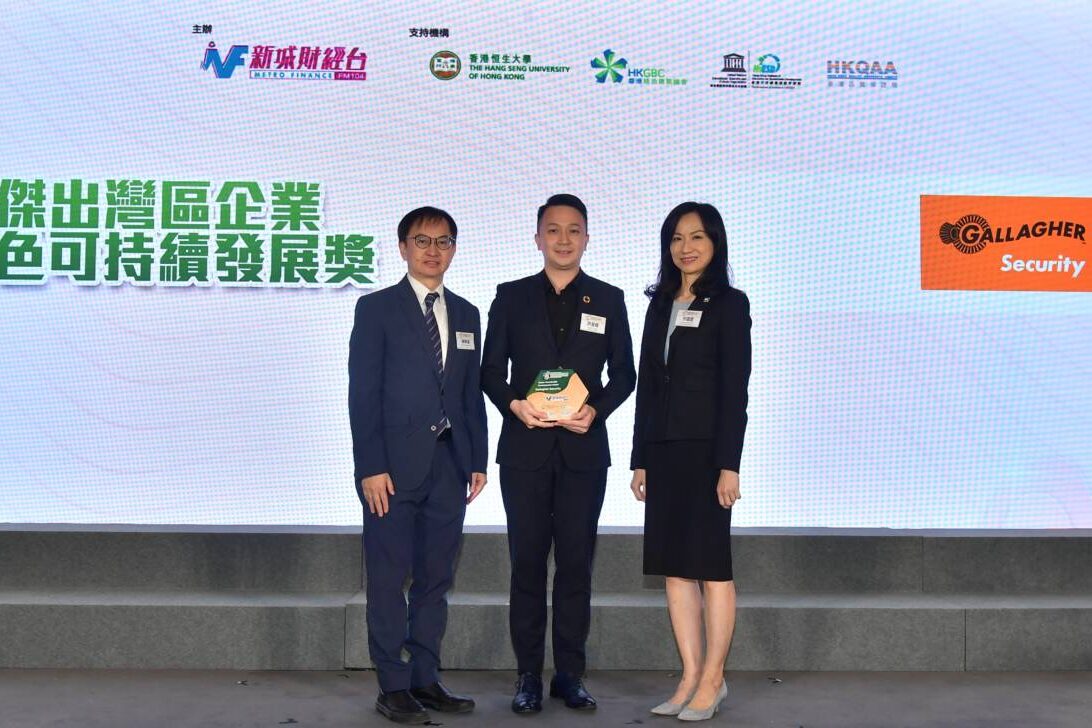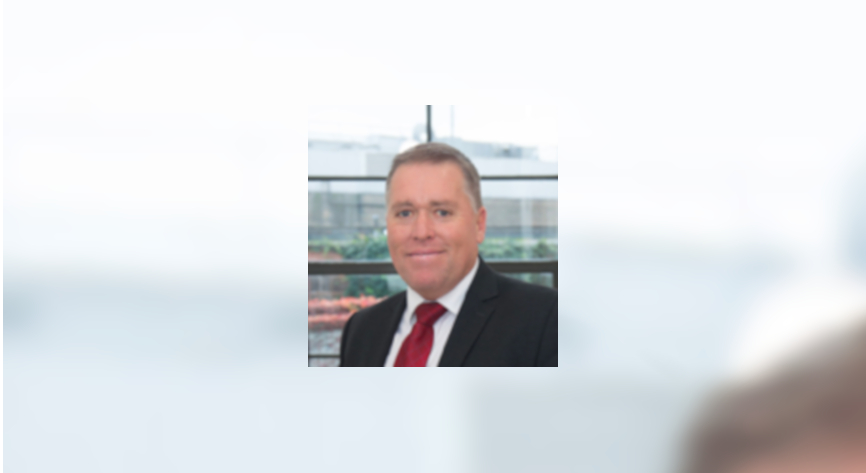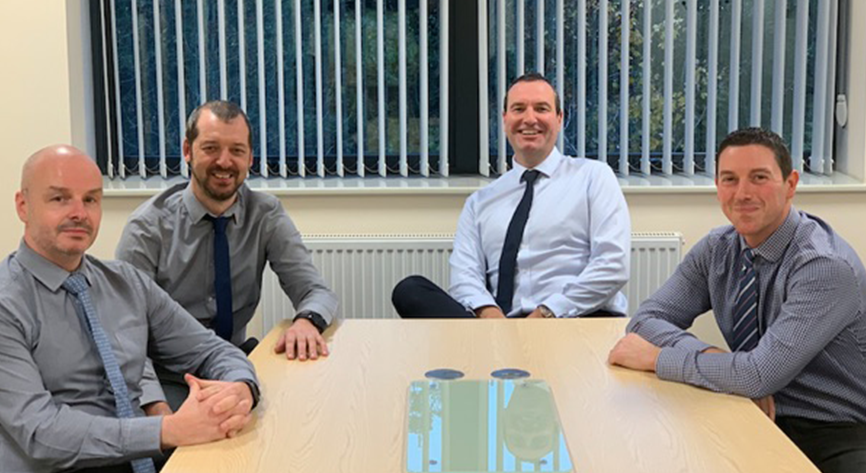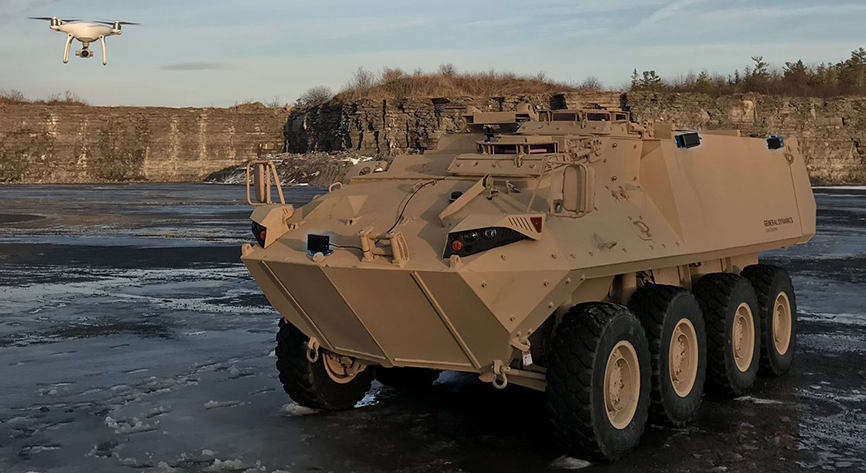 “If you’re looking for a quick win, forget it, but the rewards are great if you persevere”. Jim Catchpole, director of sales and marketing at Strongfield Technologies, sums up his experience in developing markets. We also speak to Graham Sharp, commercial director at Hill and Smith Ltd, specialist in safety barriers systems, about his experiences in these markets. He says “there will be success, but you’ll have to work hard for it.”
“If you’re looking for a quick win, forget it, but the rewards are great if you persevere”. Jim Catchpole, director of sales and marketing at Strongfield Technologies, sums up his experience in developing markets. We also speak to Graham Sharp, commercial director at Hill and Smith Ltd, specialist in safety barriers systems, about his experiences in these markets. He says “there will be success, but you’ll have to work hard for it.”
Asia is now the most coveted homeland security and defence market in the world, a market valued in excess of $1 trillion. Now all eyes, including those in Asia, are turning to Africa. Along with many US and European firms, China and India are in fierce competition to win over key African homeland security contracts.
With steady growth, and increasing potential, especially in the security markets, the continent has become an attractive option to companies worldwide looking for unparalleled growth opportunities abroad. Together, Africa and Asia cover 50 per cent of the world’s landmass, and make up 22 per cent of the world’s defence market; these are two homeland security and counter terror markets which, according to both Catchpole and Sharp, cannot be ignored.
According to Graham Sharp from Hill and Smith, “You’ve got to be there… as a business, you won’t grow unless you join these markets”.
Exploring Asian markets
Along with the fast pace of growth in these economies comes the ability for consumers to purchase newer and better security solutions and technologies. Increased investment creates the need to protect infrastructure critical to the economy, especially in the energy and tourism sectors.
Asia, as the current driver of the global economy, has new and challenging security needs, which is opening up immense opportunity for the homeland security and defence industries. With a population of over one billion people, the third largest purchasing power parity in the world, and alongside its political and Ethno-religious tensions, India is now facing constant threat both internally and externally.
Although the revamp of the Indian Homeland security infrastructure has been underway for over ten years, the past few years have seen modernization undertaken with a sense of urgency, especially since events in the past decade have revealed its underlying vulnerability, such as the Mumbai attacks in 2008.
Sharp believes the security issues in Asia to be very serious, with the biggest issue to the population in Asian countries to be the threat of terrorism. Whilst the entire Asia Pacific makes up a large share of the world’s defence and homeland security expenditure, it is East and South East Asia which makes up more than half of the region’s spending (see Figure 1), with most spending coming from India.
Figure 1: Regional Asian Homeland, Military and Defence Markets, SIPRI Stockholm International Peace Research Institute
According to Catchpole, the main security issue is protection of territory, borders and the internal security. In India, the main issues are “the Maoists, the borders. In Africa it is illegal smuggling of arms, drugs and people”.
Strongfield Technologies, an engineering and training consultancy and specialist supplier of high tech equipment for defence/security, now have an Indian branch and work “to help enhance capability that already exists”. Catchpole says that in India, they require improved interception capabilities and modern technologies to “provide the means to detect movements across borders, and by boat, they need sensors to detect intrusions, technology will help to provide that security.” They’re now working with Indian companies to deliver to African markets, following a trend of ever increasing cross collaboration between the continents.
More recently, the Indian government has overseen enormous investment into the counter terror and homeland security arena. According to Catchpole, “India is transforming from a pure defence market and is now focusing on homeland security”. This is due to large scale growth in infrastructure and foreign investment and concerns to keep borders safe. More specifically, HLS forces in India are substantial in size, approximately equal to the active military troops of the US, UK, Germany and France combined. Therefore, modernisation of these forces has created a huge demand for new equipment, tactics and training.
Securing critical infrastructure, including tourism related infrastructure such as airports and hotels, has become a national priority. India has 60 airports, most of which are undergoing modernisation and security redevelopment. Mainly due to internal threats, paramilitary and police forces of Central and State Governments are likely to be the biggest spenders in coming years. According to studies, the 2010 market for electronic security products (surveillance, CCTV) for private industry was almost US$ 800 million, growing by an impressive 26 per cent a year.
The incredible pace of change cannot be ignored. Speaking about the Asian markets, Catchpole explained that for Strongfield Technologies “it’s playing the long game. However, if you win niche market, you often retain it. Our advantage comes from having a good knowledge of the Indian market, through our research as well as the fact that we have spent considerable time on the ground, building relationships.”
Why Africa as a potential market?
Due to years of rapid growth and development, certain Asian and Middle Eastern markets are already considered mature; already “emerged”. While the view of Africa is as a continent rife with conflict, stifled development and poverty, this assessment is quickly changing. The IMF predicts that no continent will grow as quickly over coming years. Foreign Direct Investment (FDI) into Africa increased by 5.5 per cent last year, reaching $38 billion, even though the total to developing countries fell by nearly 7 per cent.
The increasingly interdependent relationship between Asia and Africa has served as one catalyst for Africa to develop the necessary economic and homeland security infrastructure required, for further investment and development. Catchpole sees Africa as a “kind of competition between India, China and others”, all attracted by the mineral resources and investment opportunities, especially in North Africa.
Just as Asian countries have done, it is expected that over the next few decades, African countries, fuelled by economic growth and compulsion to protect critical economic assets, will spend robustly on the development and consolidation of their security architecture and invest heavily in modernisation of their armed forces and law enforcement agencies.
According to the Israel Export and International Co-operation Institute, African Homeland security spending is expected to reach $344.5 billion in 2022 up from $178 billion dollars in 2010, with significant growth in aviation security, communications, data and cyber security and counter terrorism. Speaking of the African markets in which he works, Catchpole stated that “there’s now a greater emphasis on security rather than defence, however, the lines between the sectors have become blurred”. Terrorism is increasingly posing a massive threat to African countries. The number of terror attacks in Africa since 2001 has increased from around 21 to well over 150 per year (Figure 2).
Figure 2: The number of terrorist attacks in Africa 2001-2011. The Inter-University Center for Terrorism Studies
Due to the changing security landscape, opportunities for international companies to win contracts in Africa are now growing faster than ever before, and according to Catchpole, the modernisation of existing security systems and defence in African inventories can be just as important as the procurement of complete new security systems. Modernisation is a key opportunity for African governments as they are constantly competing to attract more tourism, which includes securing infrastructures such as airports, hotels and embassies
Currently, the urgent security issues which need facing across the continent are broadly similar to those facing Asian countries; critical infrastructure, including energy security as a focus, border security and crime control and thirdly, counter terror. Whilst militarised violence has decreased around Africa, criminality has increased. Africa has become a major transit hub for drugs trafficking across the continent and into Europe, commodity smuggling including oil bunkering and blood diamonds, and illegal weapons trade. Marine piracy has seen an overall decrease but it is still a critical security issue. International forces have been deployed extensively to counter this, however they have been cut down substantially over the last few years.
Therefore there is an urgent need for localized forces to train and deploy home-grown trained forces. Speaking about Africa’s criminality issue, Sharp explains Africa’s natural resource curse: “Africa is the world’s bank of natural resources and naturally, people just want to pinch them”.
Figure 3: African military expenditure including homeland security and defence. SIPRI, The Stockholm International Peace Research Institute
This Graph shows the ever increasing military expenditure (including homeland security and defence) by both Sub-Saharan Africa and North Africa, with North Africa making up an increasing percentage of the continents total expenditure (Figure 3).
North Africa
North Africa’s military expenditure increased more than any other region in the world (in terms of average annual expenditure, see graph below) with approximately a 14 per cent increase between 2009 and 2012. Algeria is the top spender on defence and homeland security in Africa; over the period 2003–12, spending increased by 189 per cent, reaching approximately $10 billion in 2012. Such an increase has been linked to terrorist threat by terrorist group AQIM who target military and police in deadly attacks. This has caused the Algerian government to strengthen border cooperation with Mali and Libya. The government has increased military personnel to patrol borders in 2012 and increased surveillance and checkpoints to track drug trafficking, arms trading and militant groups.
Opportunities in Energy Security
In 2013, terrorists called the Signatories in Blood, attacked a BP plants in Algeria which killed almost 80 people and is considered the worst attack in the oil and gas industry in modern history. This attack and many others have driven the government to invest in an even larger defence budget, and imports from global markets are increasing. In response to the recent attack,Youcef Yousfi, Algerian Minister of Energy, vowed to increase security, as the country depends first and foremost on its energy resources. So far, defence procurements mainly come from Russia, France India, Italy, UK and finally, the US, especially due to political cooperation on terrorism
Increasing global energy demands and rising prices, means the necessity for increased exploration in high risk areas, like North Africa. The global market for oil and gas infrastructure security is expected to be worth $28.44 billion, according to market analyst Visiongain. Thus, especially in North Africa, the market for security products and services especially those aimed at protecting critical assets in Upstream, Midstream and Downstream industries are displaying immense growth. According to a recent survey by Security Company OGIS East Africa, most energy companies operating in Africa cited concern with 1) local activism 2) Pipeline Security 3) Crisis Response 4) Terrorism 5) Militancy and 6) Illegal Bunkering, in that order. Most energy companies spend between $100,000 to 100,000,000 to secure their assets in Africa, with 20 per cent spending $100,000,000 or more.
West African Security
West Africa also faces serious security issues, is continuously increasing its homeland security and defence budgets, and West African states have begun to increase imported security solutions from international companies. Like North Africa, West Africa supplies the global market with a large share of oil, gas and mineral resources. A threat to both domestic and international economies is “oil bunkering”, the illegal theft of oil. About 80 per cent of oil companies surveyed by OGIS claimed West Africa posed the biggest threat to business out of all African regions. Countries along the gulf in West Africa are estimated to lose up to $1 billion dollars annually to such activity, which has prompted increased investment in infrastructure security. In 2011, the Nigerian military heightened its response, by destroying almost 500 illegal refineries.
Nigeria’s homeland security budget, comprising of the ministry of police affairs, formation and command, is currently estimated between $3-5 billion and predicted by ICD Research, to increase to US$12.0 billion by 2017, driven by such acts of extremism, drug trafficking, cybercrime and money laundering.
On the coast, the Movement for the Emancipation of the Niger Delta has been targeting international oil companies from kidnappings to attacks on pipelines and thefts of millions of dollars’ worth of oil. Like in other West African nations, Piracy is a serious issue, not only causing millions of dollars in theft and damage, but many fatalities every year. In the North, religious extremist and terrorist group, Boko Haram, is notorious for attacking civilians, police and government. What Nigeria needs, is to develop their law enforcement capabilities to improve their ability to track arrest and incarcerate criminals, terrorists and violent extremists. In response to serious concerns over Boko Haram, a security firm connected to the US pentagon, Pentagon Protection, was given a $1.5 million dollar contract to secure three high rise buildings at risk in the capital of Abuja, Nigeria.
Nigeria is expected to invest heavily in surveillance and intelligence technologies such as electronic identification, e-passports, automated border crossing systems, and CCTV systems. Recently the Nigerian Safe City and Safe State Security Surveillance Project was awarded to Chinese security firm, Huawei Technologies Limited at the cost of ‘over $18.5 million, in order to discourage crime across the state. ISM and Active Intelligence, a UK intelligence company, have recently been awarded a critical infrastructure contract to secure critical sites by the government. The company had to specifically design their CCTV solutions to be effective in Nigeria’s harsh conditions such as intense heat and humidity. Nigeria has become a hotspot of interest not only for oil companies but homeland security and defence companies, with China and Italy making up the most of their defence imports. Sharp argues that in African markets, the trend is that the security investments follow the money; it is not about safety of the population per se, but about protecting their economic activities, so one should expect most security investment to come from protecting and maintaining tourism, and of course, protecting precious natural resources.
Challenges and obstacles in Asia and Africa
Capabilities transfer: A Win- Win:
Despite huge opportunities, these markets are not easy to navigate, and require long-term investment, research and due diligence. Whilst they show rapid growth, Asian and African markets are still in many regards, underdeveloped. When speaking to Catchpole, he highlighted the absolute importance of capabilities transfer when working in Asia and Africa, both in terms of sharing technology and know-how.
Strongfield Technologies provide training in all areas of business, as “a lot of these countries with emerging markets have high unemployment rate, we need to help create diverse economies, need to create real jobs, jobs that are not just subsidized, so they can meet the national requirements in a self-sufficient manner”. This model of operation begun 25 years ago with their work in India, and for them it only makes sense to continue it in Africa, to help them meet European and International standards.
Sharp states that Hill and Smith Ltd also sets up local content in countries like India and Indonesia, which helps local employment. It is not only beneficial practice for the country, but transferring capabilities, providing training and employing local labour, in light of fierce competition from domestic and international firms, makes a foreign company more attractive to work with for a government. Employing this ‘best practice’ strategy can mean the difference between winning a contract or going home empty handed.
Differing standards
Sharp argues that a challenging obstacle is understanding the difference in business and political culture. That there are still some places where “they don’t need a barrier, because they have rifles” and the most important thing is that you “understand the culture of the people you’re working with…understand the audience you’re speaking with, they often have different standards”.
According to Catchpole, due to their maturity, Asian countries are better able to “define what they want”, whilst in Africa, they do not always “have the resources or clear idea of security capabilities they want. They need more assistance to develop their own procurement organisations”. Sharp strongly advises doing extensive research, credit checks and “homework” before considering investment, and Catchpole advises to “go to the people who have experience in mitigating risk, get a market assessment, spend the money for the research beforehand”.
Dangerous business environment:
Many countries in these regions are considered High Risk for travel. As mentioned in the previous section, there is a high level of danger associated with traveling to some of these regions. There is a different standard and a different culture, “you have to be aware of that and go in with your eyes open”, says Sharp. On his experience of being arrested in an Indonesian Airport overnight for having his passport stolen, he calmly states “that can happen to you, be prepared for it”.
Bribery and corruption:
One of the most commonly cited difficulties in working in developing markets, is the problem with bribery and corruption. According to a survey by OGIS, 89 per cent of oil and gas companies asked said corruption was the biggest threat to operating in Africa. For many countries, Sharp says that bribes are treated as a normal occurrence. Catchpole argues that the only way around these issues is to deal directly with a government or have a trustworthy local partner, always do proper due diligence, and never work with intermediaries or middle men.
Both Catchpole and Sharp argue that one of the most important ways to navigate these markets is to find a local partner, whether that be a public or private partner who is already manufacturing in the market. It is necessary to mitigate risks, to build real relationships on the ground, gain reputation and to have local people involved who understand domestic culture, who know the requirements.
On a positive note, Sharp says of the market, “I like working in Asia, and it really helps when you like where you work”. Catchpole is similarly optimistic, and argues that with patience and perseverance, you can succeed in these markets, as long as “you’re ready to put your money behind your venture. You can’t fly out one day and leave the next with a deal” with many programmes taking between 2-10 years to complete.
The first step: Summits, Conferences and Exhibitions
“If you can go to an exhibition beforehand, and meet the government officials, meet the right people with credibility, then I advise it”- Sharp
An important first step before considering entering these markets is to make the right contacts with key buyers and decision makers in the country, and find out if there is a market there for your product or service. According to Sharp, it is vital to get a feel for the market before you even begin to think about investing. Summits and exhibitions are growing every year in scale, as it is easier for buyers and suppliers to meet in one location rather than spend months traveling in search of business partnerships. According to Catchpole, the “prime benefit is networking, we have brand new companies, and we recommended they go to the conference. If you start thinking of the time and money, the 2-3 months you would need to get around a country like India to meet all of these people, you can meet them all in one place, which makes it worth the investment”. He says that last year they “met two companies who we ended up working with in an overseas market. If you want to interest people, save thousands in airfares, then just meet them at an exhibition”.
Following the annual summit Securing Asia, next year will see the first Securing Asia & Africa in 2014. Western businesses will be able to meet key decision makers and buyers in the capital. Summits like this one provide the opportunity for companies of all different sizes gain insight into the needs of the Asian and African markets, including Central Asia and the Middle East. These days, summits offer, besides talks, networking and exhibitions, bespoke matchmaking services, private meetings, and consultancy services. Securing Asia Africa even offers guided business trips to countries of interest.
Strongfield Technologies and Hill & Smith Ltd were exhibitors at Securing Asia 2013. In recognition of the changing market opportunities, next year’s event will encompass Africa as well. Securing Asia & Africa will take place in London 14-15 July 2014. For more information, visit www.securingasia.com.
About the contributors:
Strongfield Technologies have worked in Asian markets on civil aerospace and defence and are now active in the Middle East and North Africa, working on projects related to protecting critical national infrastructure, key institutions capacity building and security modernisation.
Hill and Smith Ltd, specialists in safety barriers systems, is active worldwide, in over 30 countries, and have extensive experience in the Asian markets and plans to enter certain countries in Africa. They work with industrial barriers, off road and manufacturing vehicle restraint systems.
Britt Titus is an international relations graduate who will soon be pursuing an MSc at the London School of Economics. She has particular interest in African development and international public policy





























